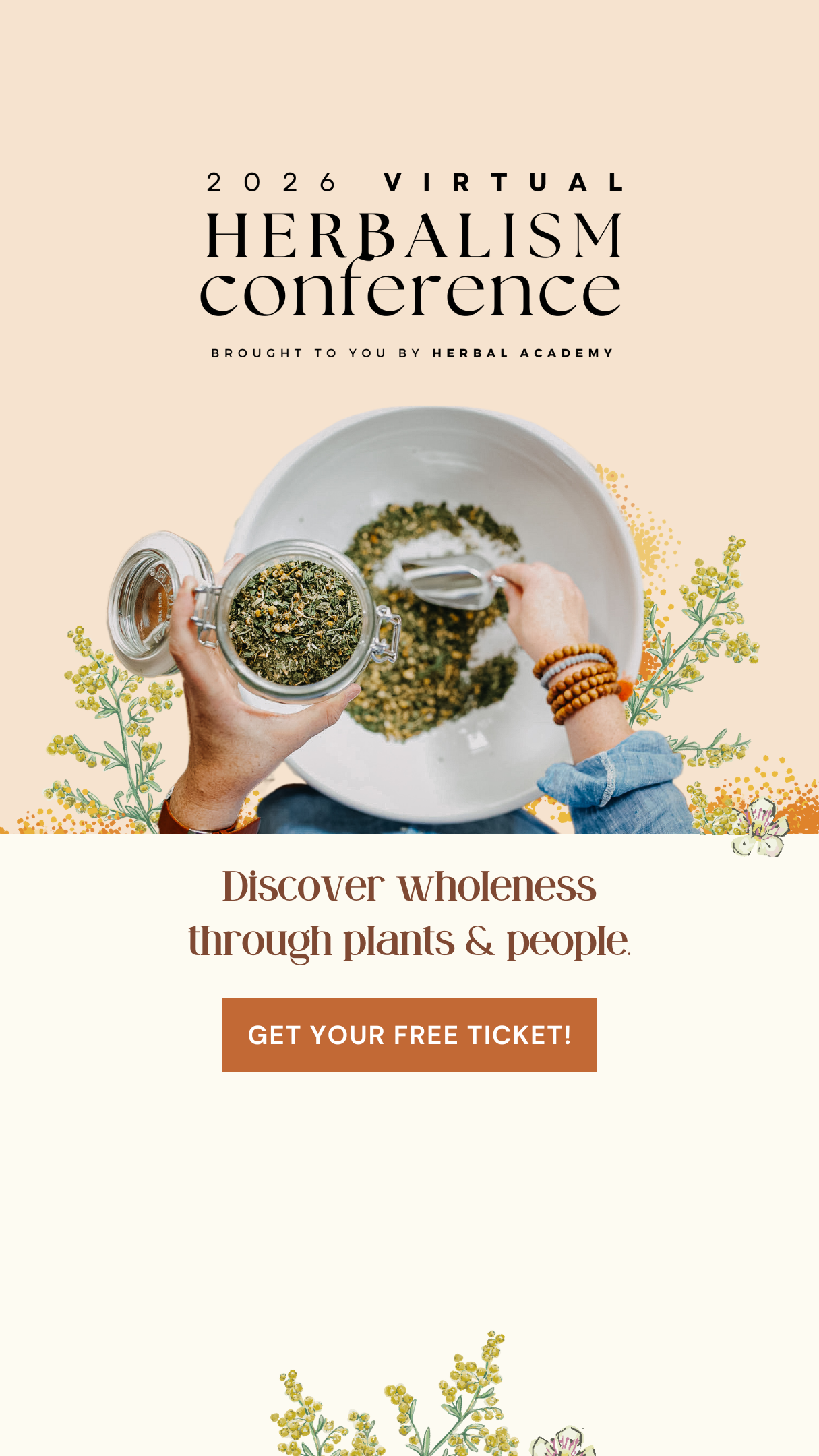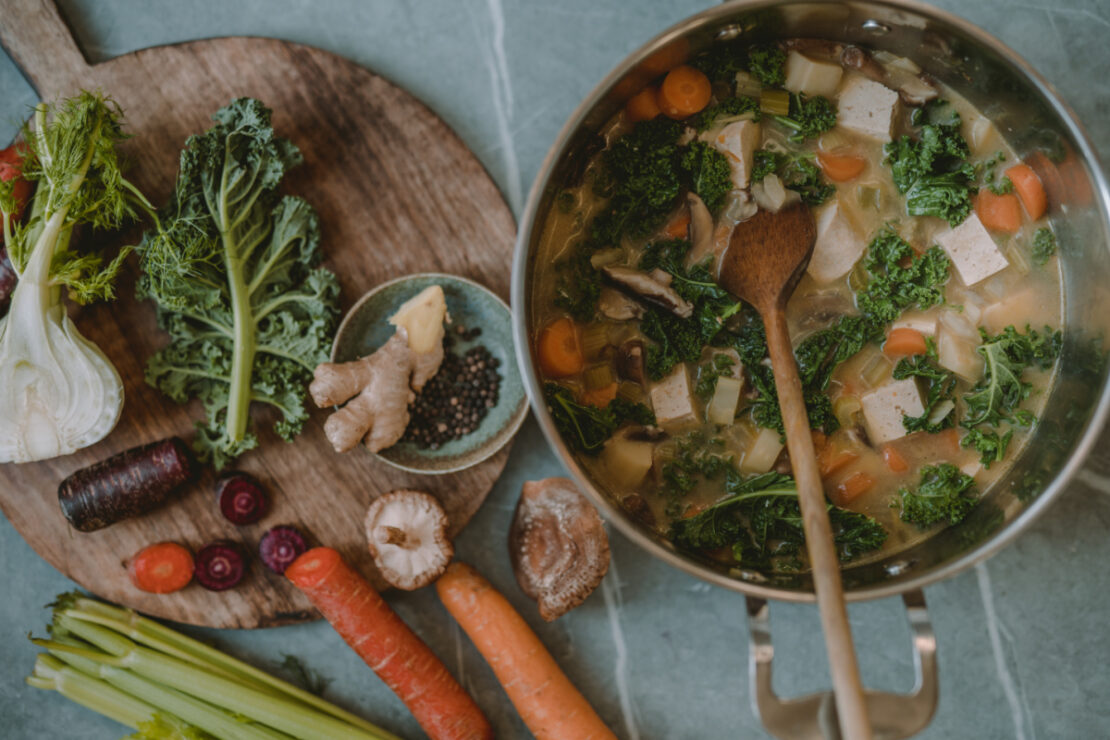
7 Foods and Herbs to Add to Your Diet for Postpartum Nourishment + A Nourishing Stew Recipe
The first weeks after birth are a very special chapter like no other—this period can be one of the biggest physical, emotional, and spiritual transitions someone will go through in their lifetime. Postpartum is the time to recover, for both parent and child. The baby slowly gets used to the new world and an intimate relationship is built. This period can be very intense—beautiful but also challenging due to the many new changes. Good postpartum nourishment, in particular, is critical to the quality of this time.
In this article, you will find some tips on how to set a good base for recovery and wellbeing, including seven foods and herbs that you can stock your pantry with, as well as a stew recipe, which can give energy, replenish lost nutrients, and gently promote milk flow.
Building a Good Foundation With Postpartum Nourishment
In the past, taking this special time for recovery after childbirth was accepted and considered necessary. In today’s fast-paced world, we often don’t allow ourselves to be still and take time out from the hustle and bustle of everyday life. We are often trying to “switch back” to our duties as fast as possible, even as a new parent. Yet recovery is of great importance, especially in the postpartum period, for the continued health and well-being of the vulnerable parent-child pair.
The so-called “fourth trimester” is ideally filled with stillness, warmth, and love. It is the time to recharge, to replenish one’s energy reserves, and to lay a solid foundation for the coming demands of the new life ahead.
According to many ancient cultures and traditions, like Chinese medicine, the so-called first 40 days, called Zuo Yue Zi (“sitting the month”) in Mandarin, as well as the care given during this time, are the cornerstone for the birthing parent’s long-term health, especially for fertility and future pregnancies, later menopause, and a dignified aging in the decades to come (Ou et al., 2016).
Besides that, a slow-paced postpartum time with support from partners, friends, family, or doulas is essential to avert mental and physical exhaustion and to prevent illness, such as postpartum depression (Gaskin, 2002).
To experience a more blissful postpartum time, a good preparation during pregnancy, the personal care of close family and friends, support in the household, as well as wholesome nutrition and proper rest sets the optimal base for this special chapter.
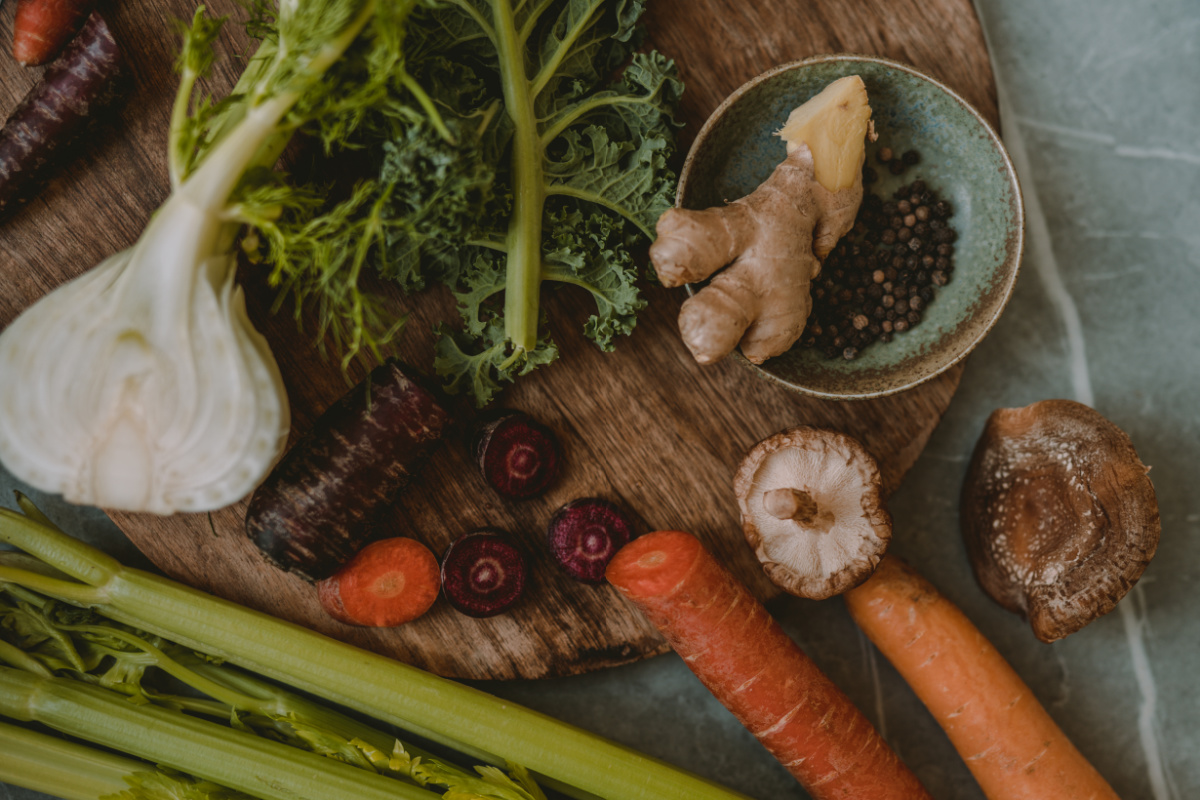
Foods and Herbs for Optimal Postpartum Nourishment
Food is medicine for the body and mind. Above all, even the healthiest meal a birthing parent consumes during the postpartum period is best enjoyed warm or at least at room temperature.
From an ayurvedic perspective, the birthing parent has excess vata (ether and air) or “wind” in the body after giving birth. This is due in part to the physical void left behind by the birth of the child. In addition, during pregnancy, blood volume increases, and after birth, this loss of excess heat must be built up again. Therefore it is essential to maintain and build up heat in the body. Otherwise, the cold (a quality of vata dosha) accumulates in areas of the body such as the spine, neck, and especially the womb—where problems can occur even years later.
The warmth in the body can be strengthened, for example, by consuming easily digested, cooked, moist, creamy, mild, and oily foods that support the digestive fire and stimulate blood circulation. In this way, nutrients can also be better absorbed.
According to Chinese medicine, supporting the digestive system also promotes blood formation, which in turn has a positive effect on milk production. Among many other basic healthy staples, the following items can greatly enrich your pantry and allow you to whip up delicious and comforting dishes in no time.
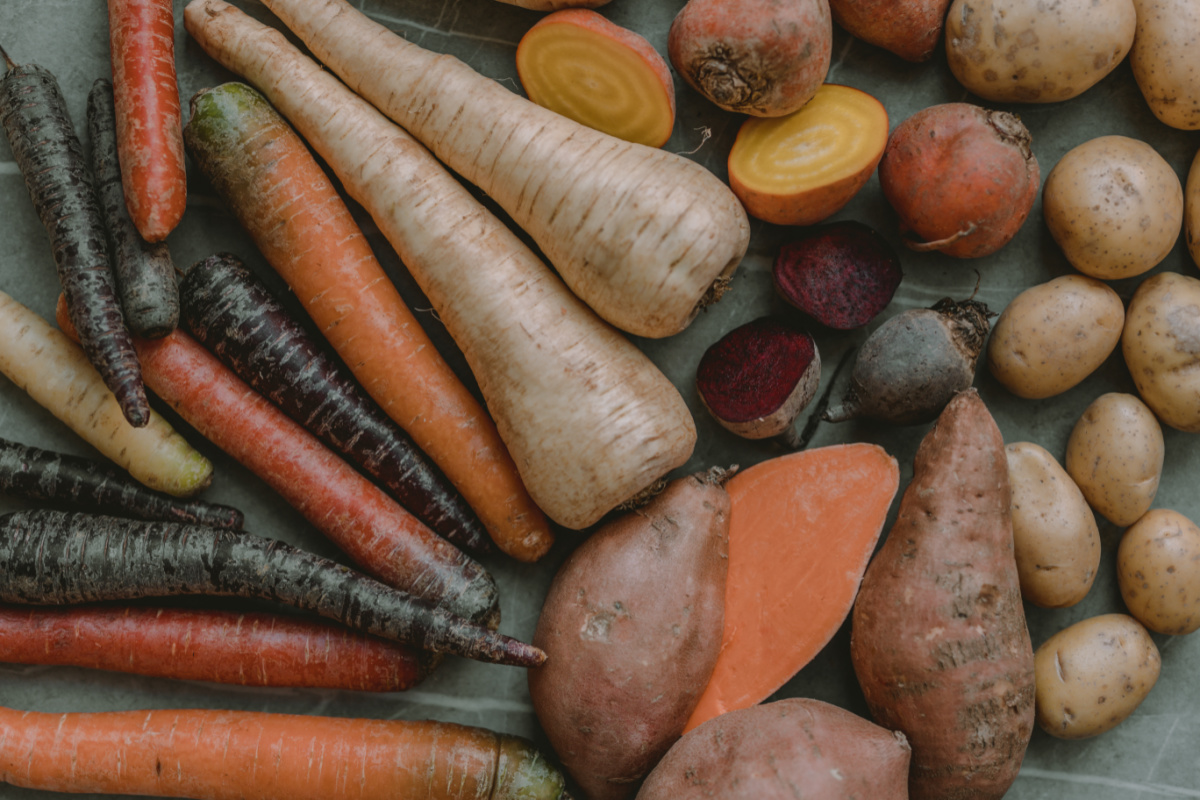
Root Vegetables
The grounding and rebuilding nature of root vegetables such as sweet potatoes, carrots, parsnips, and beets is perfect for the postpartum period. These are rich in micronutrients, beta-carotene, antioxidants, fiber, and complex carbohydrates, and can easily be baked, added to soups and stews, or mashed into a puree with minimal effort.
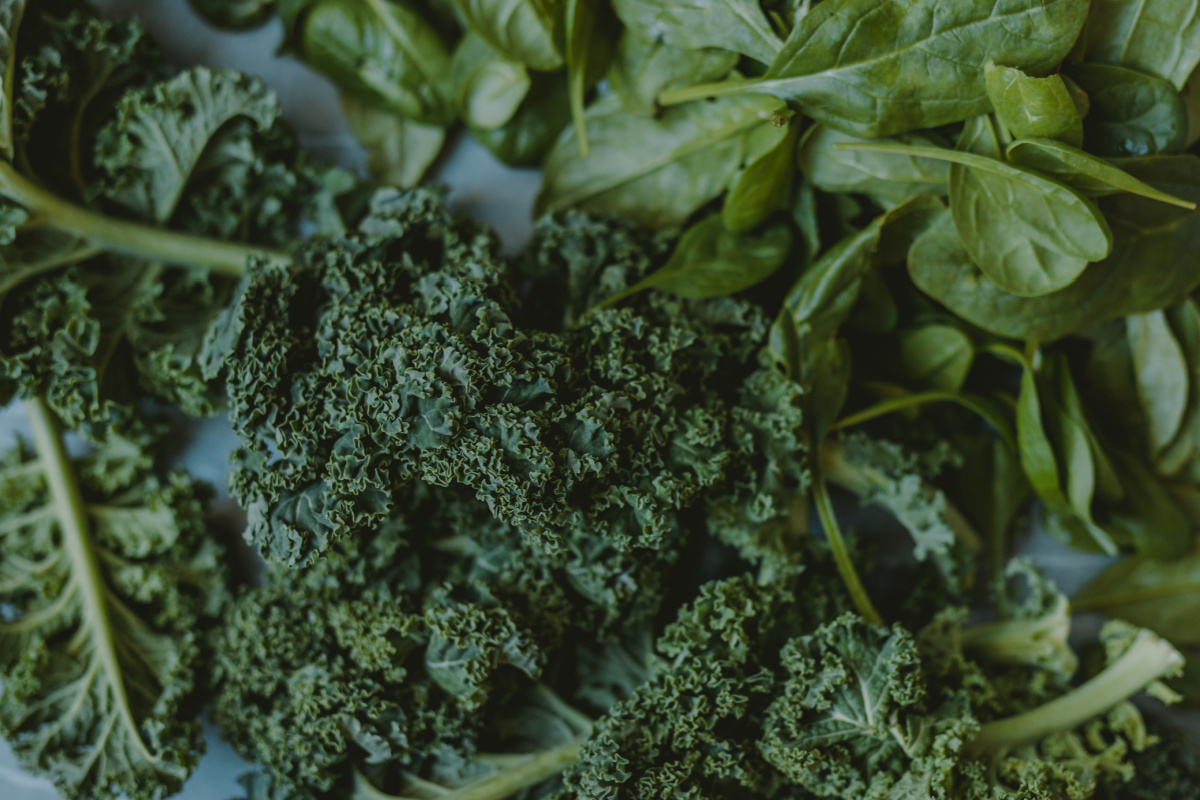
Leafy Greens
Leafy greens are a great addition to a wide variety of dishes and provide a significant amount of nutrients. Spinach, chard, arugula, beet greens, but also herbs like dandelion, nettle, or seaweeds, are ideal for this purpose.
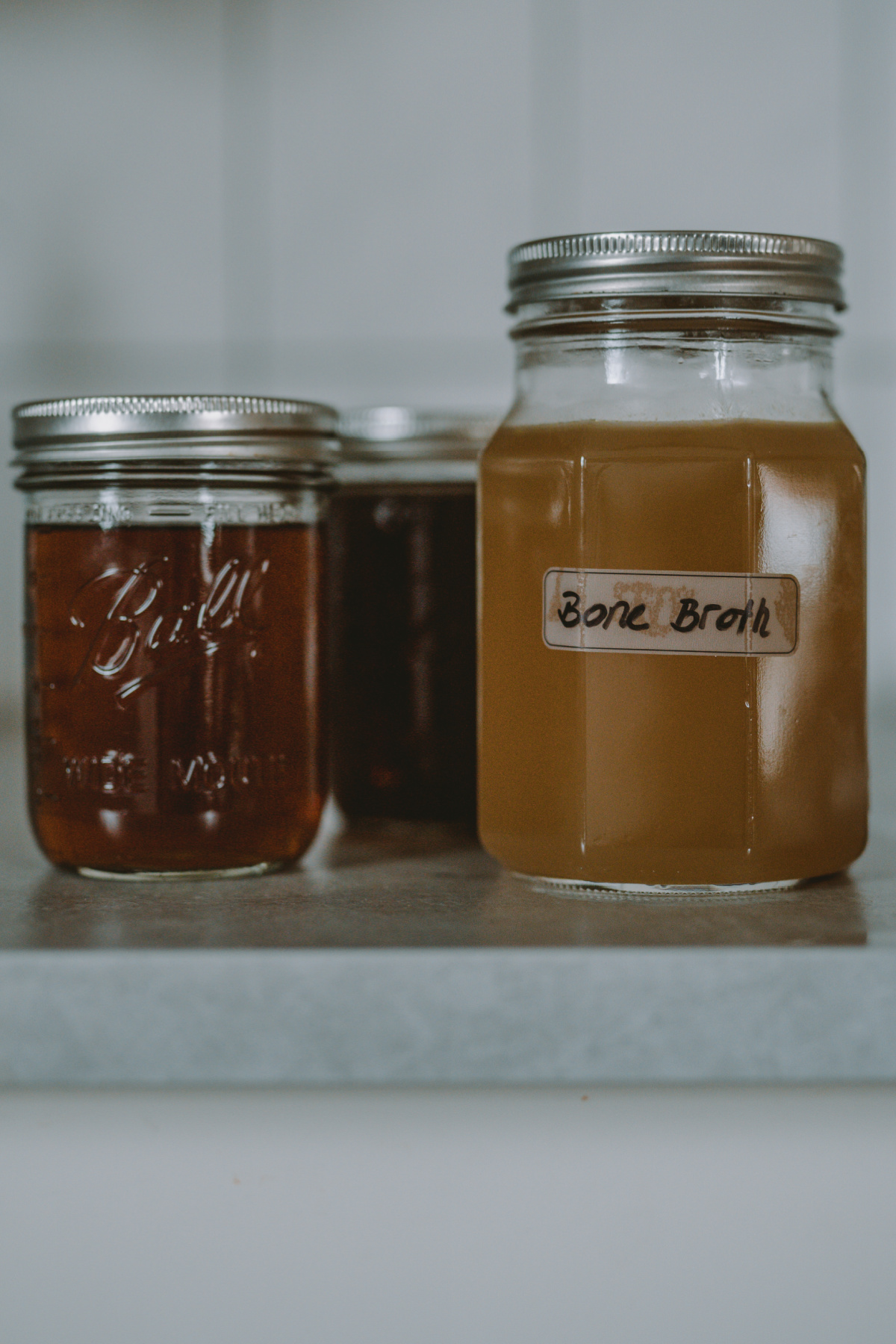
Broth
Whether it’s chicken, beef, pork, fish, or vegetable broth—homemade, nutrient-rich broths are a very useful food for the first few weeks after birth. They can be spooned as a clear broth or enriched with other ingredients to make a soup or stew. It’s really helpful to have these prepared ahead of time and frozen.
Bone broths are especially among the most nourishing dishes. They can optimally strengthen the body after childbirth. In Chinese medicine, these are known to strengthen qi, stimulate blood formation, and strengthen the function of various organs—all essential factors to recover from a state of fatigue. Bone broths flood the body with easily absorbed minerals and plenty of gelatin/collagen, which promotes wound repair and gut health. With the fats they contain, they also have a vata-balancing effect on the digestive tract (Ou et al., 2016).
Complex Protein Sources
Postpartum care according to many traditional and holistic medicine philosophies around the world requires the birthing parent to consume high-quality animal products such as meat, animal fats, eggs, organ meats, fish, and small amounts of dairy products after delivery.
Individual preference and needs can also be met with vegan sources, for example, soy products such as tempeh or tofu and grains like quinoa and buckwheat. It’s beneficial to soak grains and legumes before preparing them, as this process makes them much easier to digest.
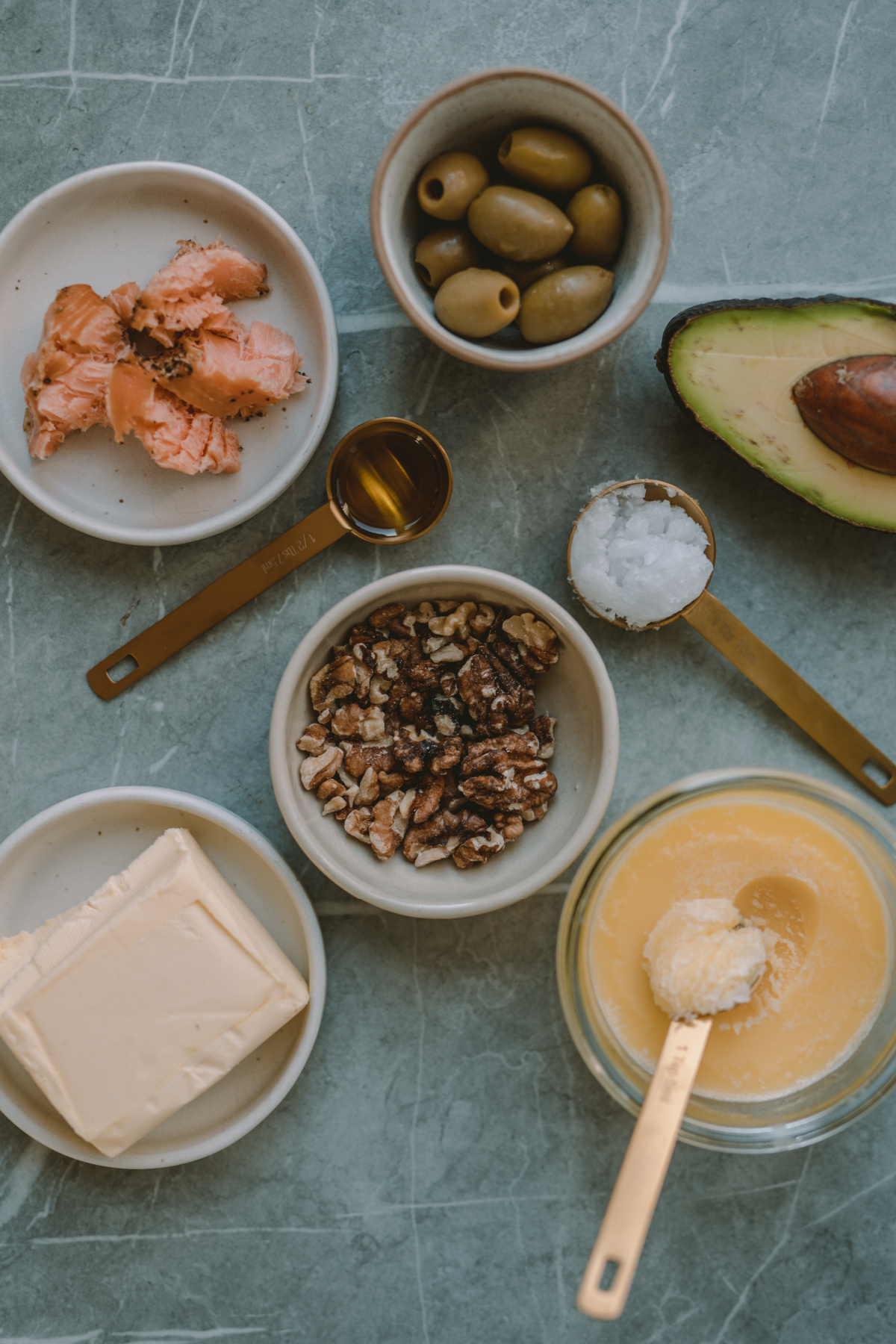
Fats
For the period after delivery, high-quality fats represent a special role. They give energy, stimulate blood circulation, support hormonal balance, and get the metabolism and digestion going. These include ghee, butter, and coconut, olive, avocado, or sesame oils as well as animal products and nuts and seeds.
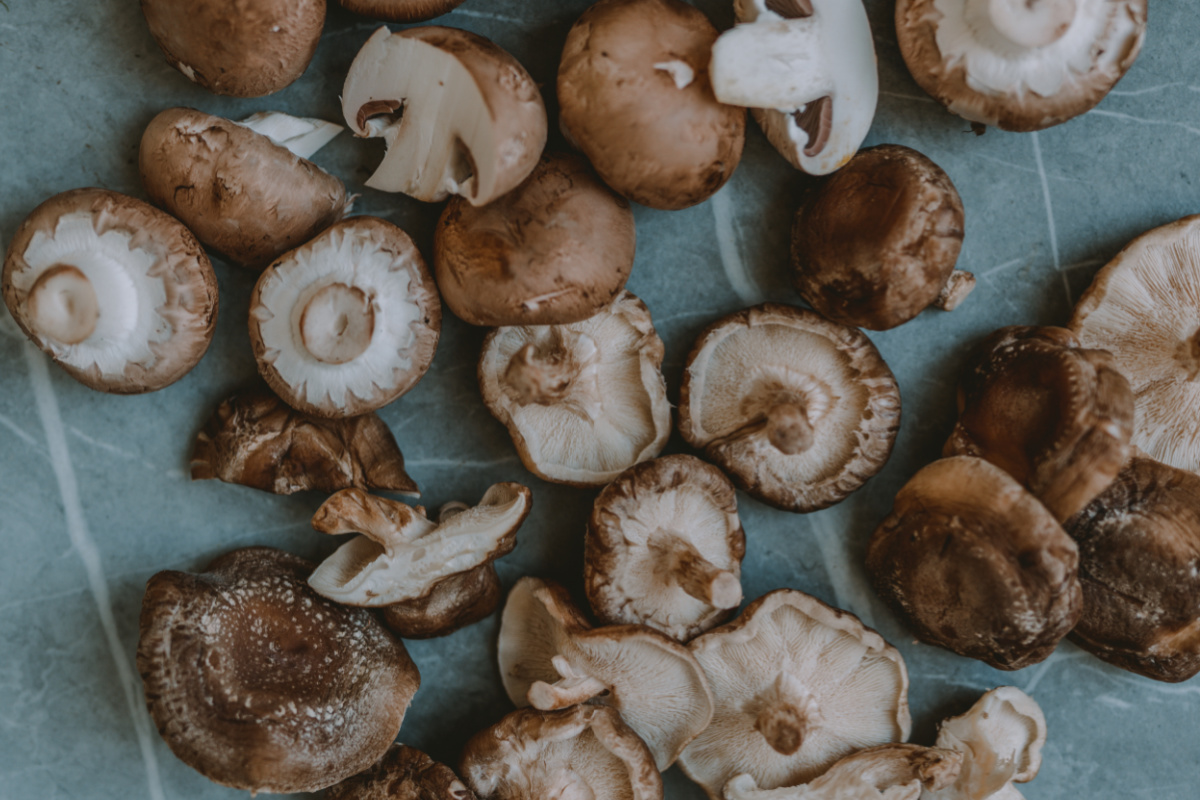
Mushrooms
Mushrooms are not only nutritious and add a delicious flavor to simple dishes but also strengthen the immune system. Shiitake (Lentinula edodes), for example, has been used for centuries to increase stamina, improve circulation, and support the immune system (Rogers, 2011). As a nervine, reishi (Ganoderma lucidum) mushroom can furthermore help to calm the mind and support emotional balance (Winston & Maimes, 2007).
Warming Herbs & Spices
Herbs that warm the body encourage the movement of blood, fluids, and energy, which is really beneficial for the body after giving birth. Ginger (Zingiber officinale), black pepper (Piper nigrum), and cinnamon (Cinnamomum verum) are ideal choices for new parents and can easily be added to simple dishes such as oatmeal, congee, and stews.
Furthermore, herbs that aid in digestion such as fennel (Foeniculum vulgare) and fenugreek (Trigonella foenum-graecum) can promote milk production as galactogogues. For more information on herbs for nursing, check out our Nursing Tea Blend Recipe.
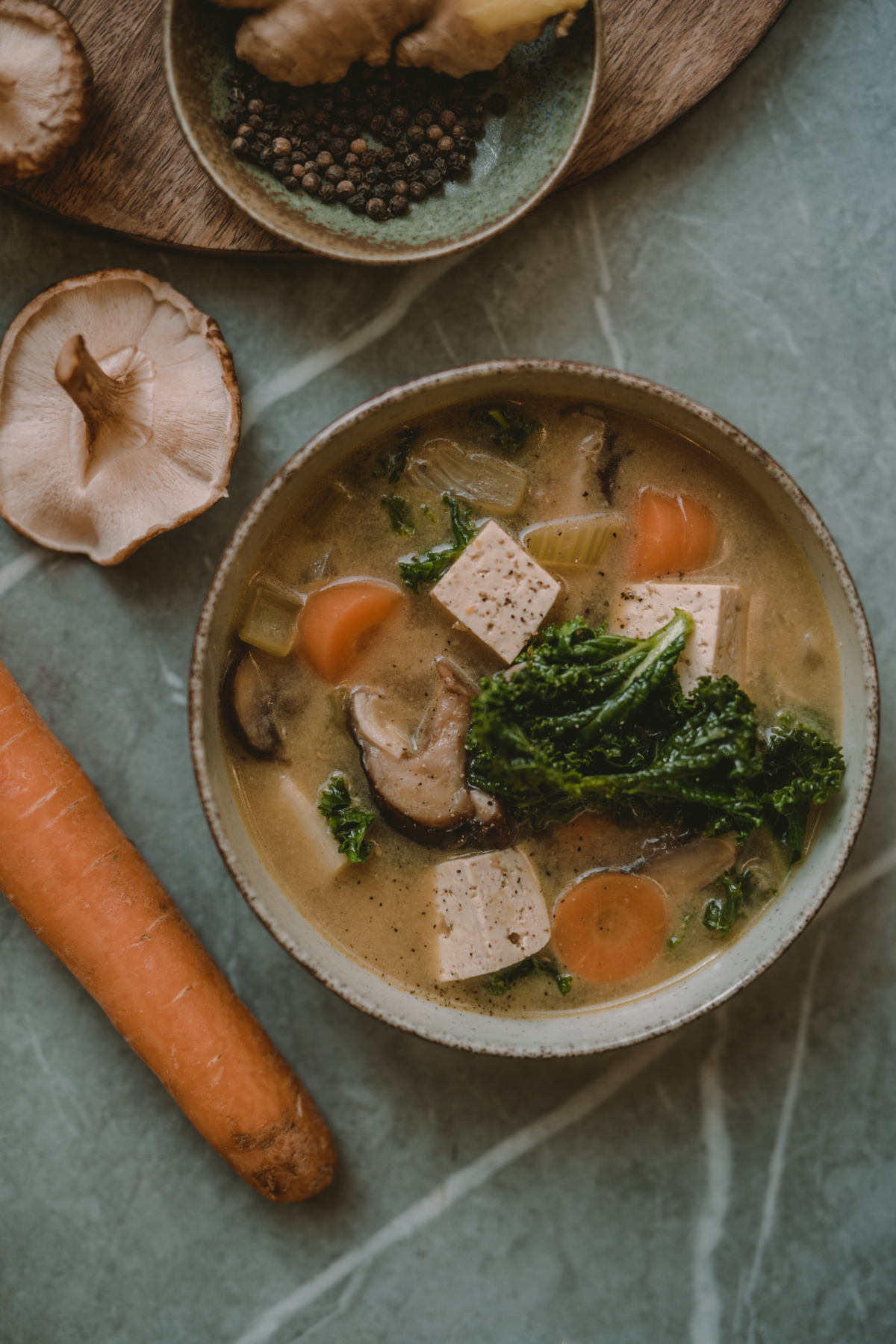
Postpartum Nourishment Stew Recipe
This super delicious, warming, and easy one-pot recipe will become one of your favorite postpartum nourishment meals! It’s best to have your caring partner, a friend, or family member prepare this simple dish for you or prepare it yourself in advance before birth, having it ready in the freezer.
This stew can be made with organic meat and bone broth or tofu and veggie broth for a vegan option. Since you can switch up the veggies, spices, and protein sources, this lovely stew never gets boring! Yield: 4 portions.
1 heaping tablespoon ghee or coconut oilPostpartum Nourishment Stew
3 celery stalks or ½ fennel bulb
1 fresh garlic clove (optional for sensitive babies when nursing)
1 teaspoon freshly grated fresh ginger (Zingiber officinale) rhizome
1 pound root vegetables of choice (parsnips, carrots, potatoes, sweet potatoes…)
½ pound fresh mushrooms (cremini, shiitake…)
1 pound minced meat (or tofu/tempeh for vegetarian option)
2 tablespoons apple cider vinegar
½ cup full-fat coconut milk/cream
3 cups broth (from organic, grass-fed chicken or beef or veggie broth for vegan option)
1 1/2 cups water
2 cups leafy greens of choice (kale, swiss chard, spinach, nettle leaves…)
salt & black pepper (Piper nigrum) fruit to taste
2 tablespoons miso paste
To Use:
Serve warm or store in the refrigerator for up to 3 days or for up to 3 months in the freezer.
In Closing,
Everyone experiences many ups and downs in the first weeks after giving birth, with confused, awkward, and chaotic moments. However, these ups and downs have their right to exist and you can benefit from them. The transition into life as a new parent, or even into parenthood again, is a very special stage of life that sets the foundation for everything that follows and may therefore be cherished completely.
Asking for help from your loved ones during this time is the best step to create an optimal experience for you and your baby. Let’s make rest and postpartum nourishment a priority for the first few weeks before the two of you start into this new life together.
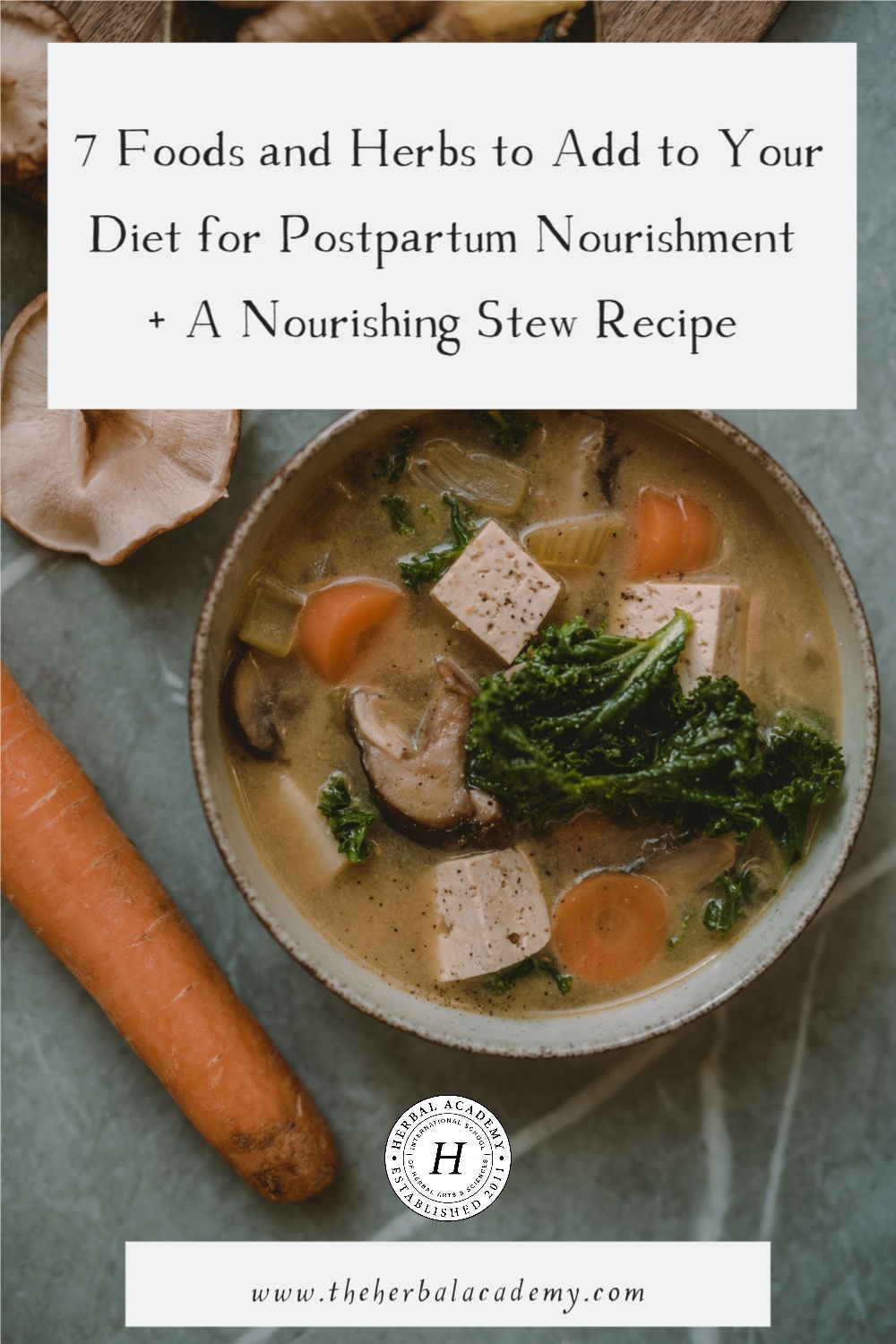
REFERENCES
Gaskin, I.M. (2002). Spiritual midwifery. Book Publishing Company.
Ou, H., Greeven, A., & Belger, M. (2016). The first forty days: The essential art of nourishing the new mother. Stewart, Tabori & Chang Inc.
Rogers, R. (2011). The fungal pharmacy: The complete guide to medicinal mushrooms and lichens of North America. North Atlantic Books.
Winston, D., & Maimes, S. (2007). Adaptogens: Herbs for strength, stamina, and stress release. Healing Arts Press.



